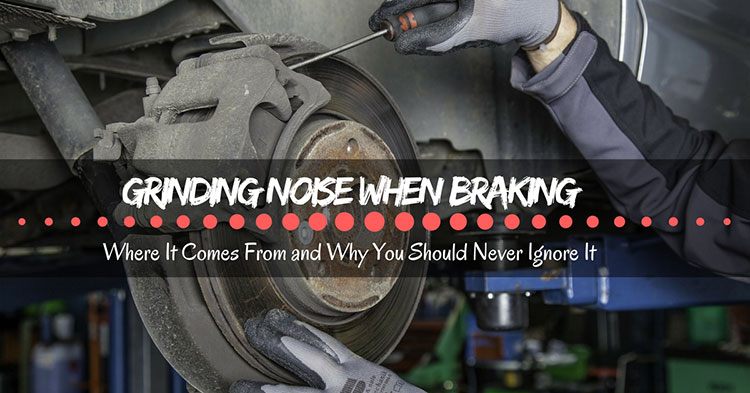
Grinding Noise When Braking: Where It Comes From and Why You Should Never Ignore It
Are you recently worried about the grinding noise you hear when braking? Brake noise is a warning sign telling you that one of your car’s most important systems is not functioning well. Ignoring this symptom may end up on more expensive repairs and even accidents you could have avoided.
More...
The brakes in your car have critical functions important for your safety. Every time you step on your pedal to slow down, your car has to generate a lot of heat energy through friction. Consistent exposure to these forces could wear out your brake pads, causing damage to the other components such as the rotor and caliper.
Read on to understand the symptoms so you can make a proper diagnosis on your auto.
How It Works?
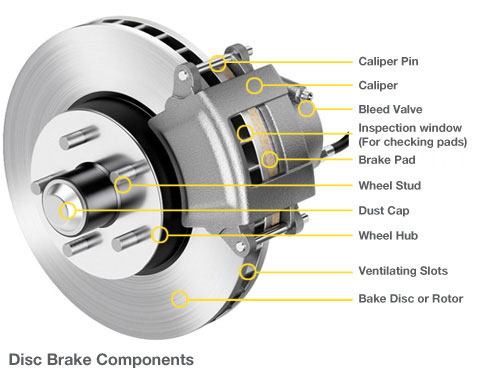
Via carpartsnigeria.com
The brake system of your auto involves a complex process and a network of components to operate. However, I will limit my explanation to the components that are most likely the source of the grinding noise you hear when braking.
As soon as you step your brake pedal to put your car to a stop, fluid pressure is evenly distributed to the cylinders assigned for each of the four wheels to depress the pistons. This, in turn, holds the brake pads and pushes it against the rotor.
While the caliper is pressing against the disk, the brake pads fastened against the disc brakes are activated to slow down or stop the car.
Over time, the brake pads that protect the components on your wheel’s hub from friction can be worn out. Without the friction material, the metal surface of the brake will touch the rotating disc or the brake shoe. The metal to metal contact leads to the annoying grinding noise you hear when braking, and you need to do periodic replacements of the pads to prevent further damage.
A lot of cars use the disc brakes on the front wheels while the drum brakes for the rear wheels. When you put the car to a stop, most of its weight is shifted forward, making the disc brakes wear out faster than the drum brakes.
Causes of Grinding Noise
Your brakes are very important safety components designed for your auto so you can stop the vehicle smoothly without damage on the wheel hub and parts, or even dangerous collisions. However, it is a reality in life that these materials do not last and there will come a time when you need to do some repair and replacements.
I have included a checklist of potential sources of the grinding noise you hear whenever you press down the brake pedal:
1. Foreign Objects Lodged Between the Caliper and Rotor
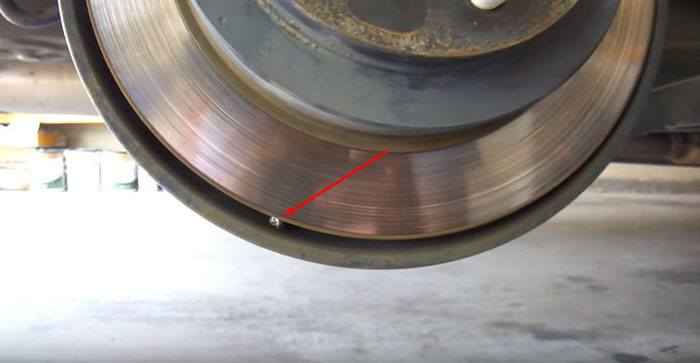
Via youtube.com
Your car is constantly exposed to road grime and dust. Regular cleaning will help keep your auto free from all the contaminants you get from the road.
However, when contaminants such as rocks or gravel are caught within the caliper, it can cause the grinding noise you hate so much whether you brake or not.
Foreign objects lodged between the caliper and rotor can cause friction during movement and eventually damage the components.
You can remove the contaminants by driving your car slowly back and forth until the foreign objects inside are dislodged. If this doesn’t work, you need to loosen the wheel nuts with a wrench and jack up your vehicle using jack stands to remove the wheel.
Unscrew the disc and gently move it outward to release the debris trapped inside. Don’t forget to put everything back as it is once all the contaminants are gone.
2. Poor Quality of Brake Pads
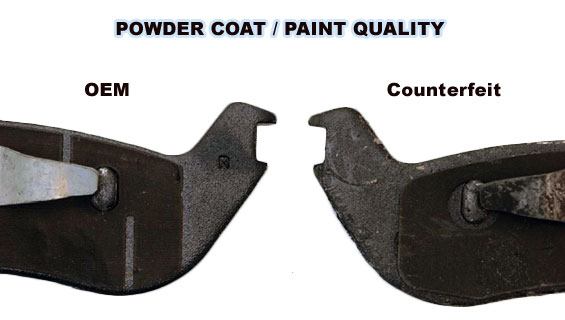
Via safebraking.com
If you have recently replaced your pads but still hear the grinding sound, it could be due to the low quality of pads being used.
Some friction pads (semi-metallic) contain chunks of metal that might cause friction into the rotor and eventually damage it.
I would highly suggest using OEM brake pads (depends on your car model) when doing a replacement to get better results.
If you want to know more detail about the OEM brake pads, You can click here.
3. Worn Off Friction Pads
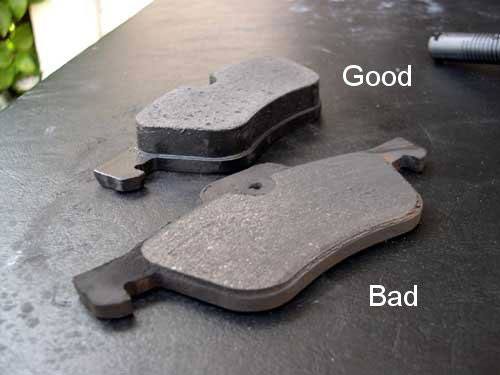
Via k1motors.com.au
Once the brake pads are worn off, the metal components mounted on your wheel hub are exposed and cause the “metal on metal” contact.
The backing plate, for example, will have contact with the rotating rotor and cause grooves and damage. The rotor might also eat the metal surface of the caliper and lead to other costly damage.
The best thing you can do about worn out pads is to do a replacement. Moreover, doing a regular inspection of your brakes will not only save you from costly repairs but also your life! Checking your brakes at least every 2 years will save you from all the troubles.
4. Car Not Being Used For A Long Time
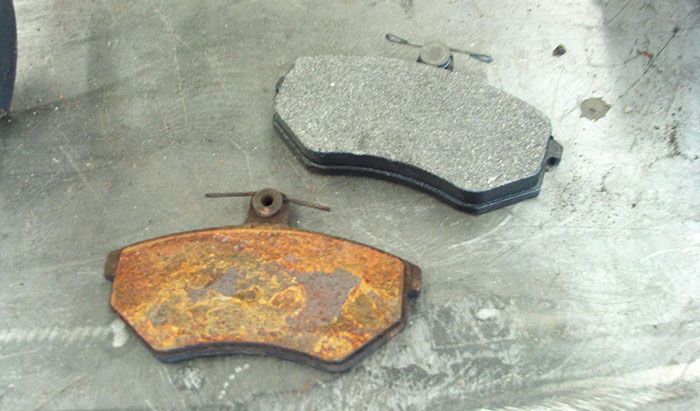
Via thoughtco.com
Your brake pads are estimated to last about 20,000 miles. However, leaving your car unused for weeks is also not a healthy habit. Corrosion and rust can form on the rotors and eventually damage the other parts as well.
I would suggest you drive your car every now and then if it hasn’t been used for a long time. Try to use the brakes at regular intervals to rub off any deposits on the wheel hub.
Conclusion!
Keeping your auto’s brake system in good shape is so essential for your car’s normal operation and your safety as well. You shouldn’t shy away from the issue the moment you hear the grinding noise when braking. Understanding the symptoms and the sources (which I have shortly explained in this post) will help you make the right diagnosis and take immediate steps to correct the issue.
Do you like the information shared in this primer? If you find it helpful, please help me spread this to every car owner you know!
If you have similar experiences, please don’t forget to type them below!
Related Posts
How to Increase Your Visibility When Driving at Night
Why Do New Car Tires Wear Out So Quickly?
How to Change a Tire: A 7-Step Beginner Guide
Top Signs You Need To Replace Your Brakes
Warning Signs for Changing Your Car Brakes

